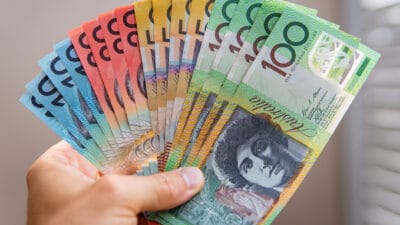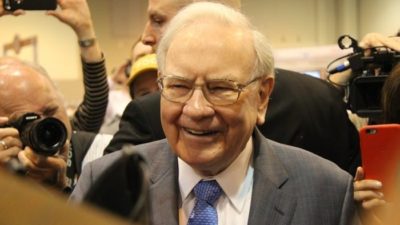Some of the world's most prominent stock markets are at all-time highs, including our S&P/ASX 200 Index (ASX: XJO). Yet, the achievement is marred by stomach-contorting signs of an impending stock market crash.
For example, Warren Buffett's investing brilliance presents a disconcerting warning. Known as the Buffett Indicator, the ratio of total United States stock market capitalisation divided by US gross domestic product alludes to the stock market's relative expensiveness.
Right now, this indicator is perched at 201%… beyond 100% is meant to be problematic.
Buffett appears to eat his own cooking. In the last two years and six months, Buffett's Berkshire Hathaway Inc (NYSE: BRK.A) (NYSE: BRK.B) has grown its cash on hand from ~A$142 billion to ~A$470 billion. We're talking more than two times the market capitalisation of BHP Group Ltd (ASX: BHP) worth of cash.
Despite all of this, I am mostly indifferent to the stock market. Even if a bubble and a crash occur, it might have its perks.
How bubbles can be good
Packy McCormick's recent blog, 'The Trump Bubble', explains the upside to bubbles after reading Boom: Bubbles and the End of Stagnation by Bryne Hobart and Tobias Huber.
Yes, this is a reflection of a reflection — reflection inception.
McCormick's takeaways were that bubbles (i.e., the overexuberance of something) can be good. It might be hard to imagine an investor who has to contemplate their portfolio crashing in value. However, before you resign McCormick and me to the looney bin, hear out the thinking.
Hobart and Huber mention the concept of an 'inflection bubble' in their book. This category of bubble is supposedly what catapulted the human race on the Apollo Program, Moore's Law, and the Manhattan Project.
As McCormick puts it:
Bubbles attract resources to important projects that would not make sense to fund or work on under a normal cost-benefit analysis.
Bubbles pull the future forward by concentrating tremendous amounts of financial and human capital on very specific visions of the future.
It sounds reminiscent of the concentrated capital in artificial intelligence stocks and Big Tech recently. Perhaps it means we're in the midst of an AI-led bubble… Even if we are, the innovation produced by it may have set the stage for another productive revolution.
What about the stock market crash when it pops?
So maybe there is a silver lining to the occasional bubbliness. Surely, there is no saving grace for a market crash.
As painful as a crash can be, I think it also has its advantages — especially for investors with decades of compounding still to come.
There are two reasons why a stock market crash doesn't really concern me:
- I believe that technological progress is bred from creative destruction
- Crashes provide better prices to accumulate more shares
If you're in it for the long haul, crashes are usually painful in the short term and rewarding in the long run. Just look at the ASX 200 Index from the COVID crash… it fell 32%, but investors are now up 18% from the pre-pandemic high, plus dividends.
That's why I'm fine with a stock market crash. And maybe, after reading this, you are, too.









